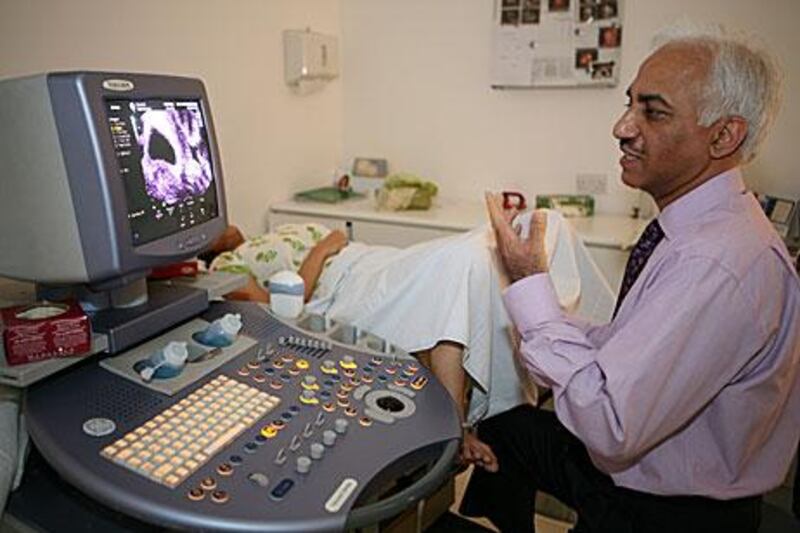Doctors say genetic testing is key in a society where consanguineous marriages are common.
Pre-implantation genetic diagnosis (PGD), which allows doctors to identify embryos that carry common genetic disorders such as thalassaemia, sickle cell anaemia or Down syndrome before they are implanted, is now widely available at UAE fertility clinics.
The average cost of one cycle of in-vitro fertilisation (IVF) with PGD is around Dh40,000.
"It is very important because you have intermarriages, people marry first cousins, second cousins, and so more diseases could be transmitted to the children," said Dr Michael Fakih, founder of Fakih IVF in Dubai.
Nearly half of UAE nationals are carriers of the blood disorder thalassaemia, and a 2007 study by Al Wasl Hospital, now Latifa Hospital, showed that 1 in 319 live births among nationals has Down syndrome, compared to 1 in 1,000 worldwide. The study said advanced maternal age was a major contributing factor.
PGD is often recommended for women over 38, said Dr Fakih, to rule out any chromosomal abnormalities as the risks increase with age.
In addition, he said, PGD can increase the chances of a successful pregnancy.
"It helps to select the best embryo which is normal, so if the embryo is healthy genetically then it will more likely give you a pregnancy," he said.
The procedure is mostly indicated for women who have suffered recurrent miscarriages or couples with a history of genetic diseases in the family, said Dr Pankaj Shrivastav, director the Sharjah gynaecology and fertility hospital Conceive.
"Clinics should only do it when indicated," he said. "It's unfair to convince couples do this when it is unnecessary."
Different types of PGD tests are available depending on what couples are looking for. Comprehensive chromosomal screening is used to detect chromosomal abnormality, however how the baby might be affected is unknown. Meanwhile, the single-gene test uses probes to detect known single-gene disorders, such as Down syndrome.
Generally, PGD is more than 90 per cent accurate. However doctors warn that there are some limitations.
Certain tests may reduce the chances for successful pregnancy in older women, because a portion of the embryo is biopsied. The exception to this is the trophoblast biopsy, which is done on day five of the embryo's development. At this point the embryo has developed into so many cells that a biopsy does not affect it.
Another limitation is mosaicism - where one embryo has different chromosomes in different cells, which may lead to inaccurate results.
"So it's not always as simple as coming in and saying, 'I want it and I can do it', there are limitations," said Dr David Robertson, medical director of the Bourne Hall fertility clinic in Dubai. "And obviously if we see people that express an interest in doing it we go through all of this with them and sometimes someone might elect not to go ahead."





